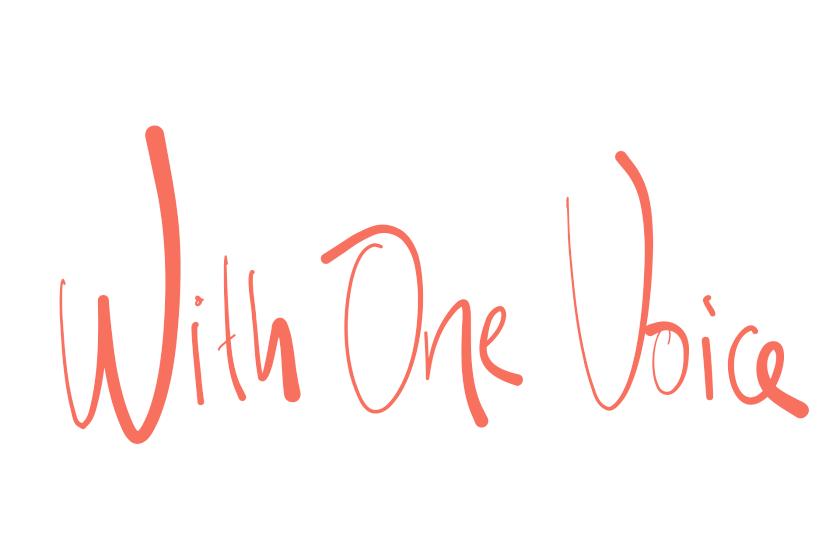
With One Voice - July 2023
Available in English, French, Spanish, and Portuguese
This month learn about the CIAM Executive Committee in Mexico City, the importance of Ed Sheeran's legal victory, mental health and strength in the music industry, new fingerprinting technology for performance royalties, and the role of AI in creating music.
Sign up to receive the With One Voice newsletter here.
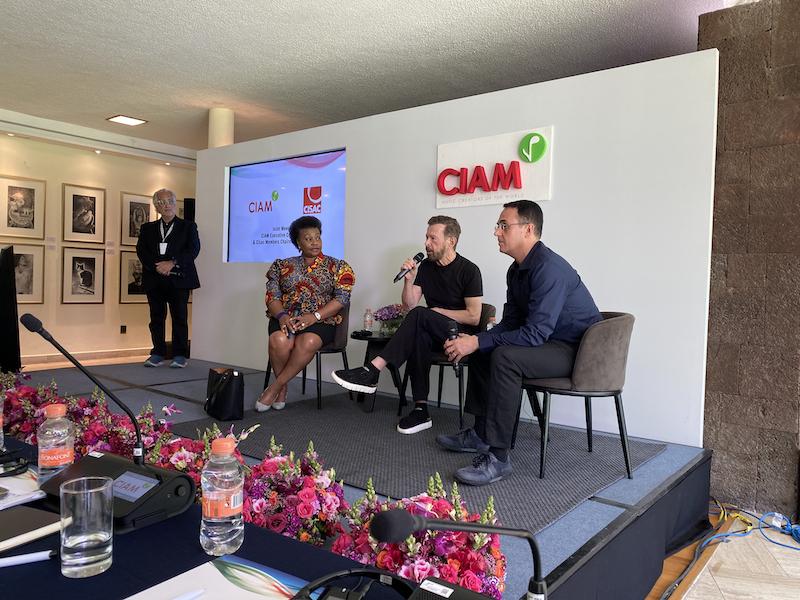
CIAM Hosts Special Guests from Around the World
On June 2, CIAM held a special session of its Executive Committee (ExCo) in Mexico City as part of a week of meetings and events hosted by the Mexican CMO SACM. CISAC Board meetings, and General Assembly preceded two days of CIAM meetings, which took place at SACM’s beautiful campus in the heart of Mexico City.
Special guests to the CIAM ExCo included CISAC Vice President and legendary South African artist and songwriter, Yvonne Chaka Chaka, CISAC President and world-famous ABBA member and songwriter Björn Uvaeus, Mexican musical giant Arturo Márquez, CISAC CEO Gadi Oron, SACM CEO Roberto Cantoral, as well as some forty Presidents, Chairs and CEOs of CMOs from around the globe. The focus of this expanded ExCo was to bring honored guests and attendees up to date on CIAM’s activities, to strengthen ties, and to underscore CIAM’s commitment to and advocacy for music creator rights and the global collective management system.
The special session was followed by a second day of ExCo and working group meetings, which continued CIAM’s work in organizing a Women’s Songwriting Camp in conjunction with CIAM’s upcoming Annual General Assembly, to be held in Rio de Janeiro in November.
The ExCo also produced a list of immediate actions it recommends as a response to the rapid rise of generative AI, and the threats to songwriters, composers and performers this burgeoning technology presents. This list was shared with CISAC, and other music creator organizations in order to facilitate a coordinated, timely response.

A Hero of the Song
In November of this year, one of CIAM’s sister organizations, Fair Trade Music International (FTMI), will for the first time honor individual music creators for the contributions they have made in furthering the cause of songwriters and composers regionally and globally. We’re looking forward to announcing more about these first honorees, and their remarkable achievements closer to the presentation later this year.
There is one songwriter however, whose recent legal victory on behalf of music creators is deeply deserving of acknowledgement, and we believe now is the time to do so.
The name of that music creator is Ed Sheeran.
Some background:
In 2013 Pharrel Williams and Robin Thicke were sued by members of Marvin Gaye's family, who alleged that the Williams/Thicke cowrite “Blurred Lines” infringed on Mr. Gaye’s 1977 hit “Got to Give It Up”. Williams and Thicke lost the case – were ordered to pay Mr. Gaye’s heirs $5 million dollars, and 50% of going forward royalties.
The jury’s verdict rested on their determination that “Blurred Lines” had a similar “feel” and “groove” to “Got to Give It Up”.
The “Blurred Lines” case left music creators facing a dangerous predicament, one that undermined a fundamental understanding of copyright – that it is a song’s melody and lyrics that are protected by copyright. If “feel”, “groove” or “chord progression” were now the accepted yardsticks for infringement, the gates of hell had opened, and songwriters’ risk of endless litigation, infringement claims, court cases and expensive settlements were dramatically increased, since these are elements often shared by a long history of songs – popular and otherwise.
Ed Sheeran faced a similar case when Kathryn Griffin, an heir to the 1973 hit “Let’s Get It On” sued him, alleging his enormous hit “Thinking Out Loud” infringed on the Marvin Gaye classic.
Unlike the “Blurred Lines” fiasco, Mr. Sheeran won his case, and in doing so, he has gone a long way to ensuring that the hounds of hell are back on their leash, and we have taken an important step towards sanity. Of course songwriters are influenced and inspired by the music that came before. Indeed, we stand on the shoulders of giants, like Marvin Gaye. That said, we can and do make our own unique contributions to this incredible, rich body of work we call popular music.
There will be entirely legitimate infringement cases in the future, no doubt. But thanks to Ed Sheeran, there is a much better chance that there will be dramatically fewer of them, and that if they do have merit, they will go forward for the right reasons.
As a songwriter, I breathe a deep sigh of relief thanks to Ed Sheeran.
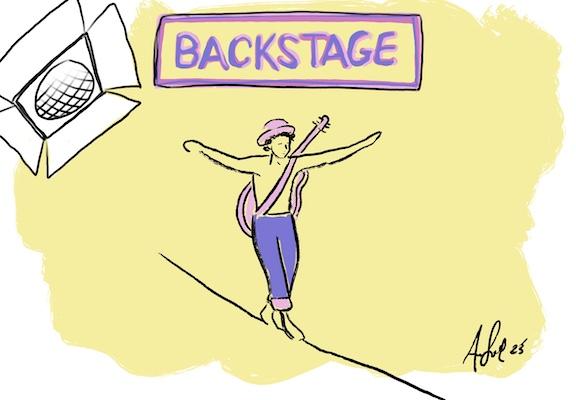
The Mental Shift
Addressing and Discussing Mental Health and Strength in the Music Industry
The heart pounds, nervousness fills the air, and a moment of silence is needed before the concert. Just before pressure from fans, journalists, and collaborators takes hold. You need to be yourself, find peace, and breathe. The manager steps in with an explosion of excitement and energy: "This is going to be great. You're amazing!" The manager, who is also nervous and perhaps anxious, may have sensed your tension and thought that boosting the mood would help. You both know that. Unfortunately, an energy boost works for some, but doesn't work for you. You don't explain your needs to your well-meaning manager to avoid ruining the good mood. What was supposed to recharge and give focus becomes disruptive to your well-being and performance.
This scenario is unfortunately all too familiar in music. What makes it difficult to communicate our needs, which would otherwise enhance well-being and make us even better at our craft? What prevents us from aligning expectations and creating a space for honest exchange of needs? When do I perform best and thrive? When do you? How do we ensure we treat others the way THEY want to be treated? It requires a mental shift!
In Denmark, two organizations Mental Voice and Autor began collaborating in 2019 after recognizing the prevalent taboos surrounding mental health discussions within music. Taking charge of one's health and striving to enhance mental strength leads to improved performance, motivation, and potential for a sustainable career. Addressing mental health is as ambitious as focusing on physical well-being, requiring understanding personal strengths and weaknesses. Removing stigmas associated with mental challenges is crucial, as anxiety and mental health issues can affect anyone.
Mental Voice made a survey in 2021 revealing a striking statistic: over 62% of musicians experience anxiety, in contrast to 18% of ordinary citizens of Denmark. It's clear that mental challenges are prevalent in the industry. The industry's conditions are perceived as less conducive to mental well-being, which raises the question of how we can provide better support.
One defining aspect of music is its sky-high demands. However, with high demands come the need for sufficient resources. Research emphasizes that mental well-being in a work context depends on balancing demands and resources. While being in an industry with high expectations can be motivating, without the necessary resources, stress and burnout become risks. The industry places immense pressure on both artistic and commercial aspects, fueling fierce competition and requiring exceptional performance levels. Even on bad days and suboptimal conditions, the show must go on.
To mitigate these challenges, prioritizing mental well-being is crucial. Neglecting mental health not only affects artists but also talented managers, A&R personnel, and bookers. By working collectively on mental health and providing the industry with tools and resources, we create a culture where everyone can thrive and perform at their best. Similar to talent development environments in sports, the music industry needs concrete methods for mental training to foster inclusivity, empathy, and open discussions about both strengths and weaknesses.
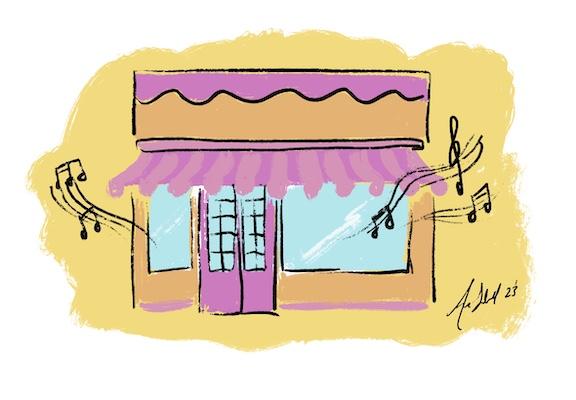
Revolutionizing performance royalties with technologyCreators have relied on technology to facilitate fingerprinting, identifying, and collecting mechanical royalties for years. Technology is now looking to bridge a major gap to improve the accuracy and transparency of performance royalty collections and distributions worldwide. Lucky are those who have their music played in public places, yet how do we know if those performance royalties make it down the chain and reach those creators? Up until now, finding this out has been slow to evolve, often with a person sitting in a venue for a moment taking notes of what’s being played, then generalizing it to create reports, or having to rely on broadcast logs from radio stations as a form of proxy data. New technology from Audoo not only shows promise, but seeks to improve collections, distributions, music discovery, and a whole array of activities central to creators. Audoo has created a device called the Audio Meter ™ that recognizes and identifies music played in restaurants, bars, stores, fitness clubs, nightclubs and other public spaces. Smaller than an iPhone, the Audio Meter runs off cellular networks with additional capability for Wifi, if required. It just needs to be plugged in. It simplifies the process for users and exports administrative reports to societies to ensure payments get to the artists more accurately and transparently than before. So, if a store loves supporting local artists, Audoo helps ensure collections can get to those artists with reliable reporting to partnered societies. Audoo also focuses on privacy for users, only identifying songs while stripping out conversation and background noise to create a digital fingerprint on the Audio Meter, which is sent to the cloud to match against a catalogue of over 120 million songs that extend across musical genres, language and geography. The Audio Meter has no language processing and does not record, store, or transmit any audio files. Through this process, Audoo meets the highest standards of privacy, which is a key factor in driving adoption by business owners.
|
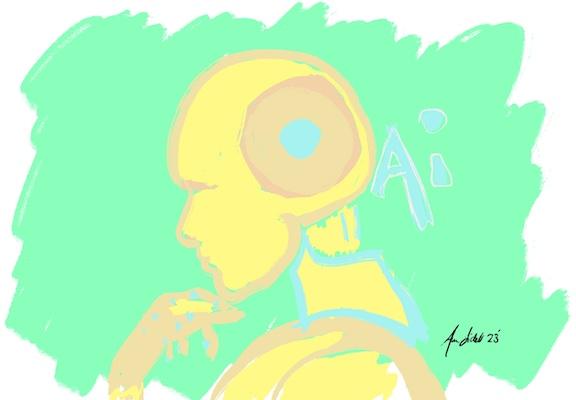
Where is My Flying Car?Artificial Intelligence is not a tsunami, but a constant flow that grows slowly and inevitably in search of its space in this civilization. AI is ushering in a new era with advances in science and technology. These advances have led to such essential benefits as newer vaccines or stronger and lighter materials for the Aerospace market. But music is something else. Today, language models like MusicLM and Jukebox can rudimentarily generate songs if you feed them with a prompt. Still, they are far from human creativity that can create trends or break paradigms like The Beatles, Michael Jackson, Radiohead, or Mozart. Although they will become more sophisticated over time, these tools could hardly stand in for human creativity. The real danger is the introduction of millions of AI-created works by streaming platforms, clogging an already crowded market. Tencent Music Entertainment released over a thousand AI-performed songs last year, one of which achieved over one hundred million streams. Despite creating 14 million songs, Spotify banned and later reinstated Boomy, an AI music generator. Bommy argues that his millions of users are the ones who “create songs” using his artificial language model. But when one reads the contract to use this application is easy to discover that Boomy keeps the rights to the songs its users create with this application. Undoubtedly, dozens of tools, such as voice cloning technology (SoftVC VITS Singing Voice Conversion), can become new monetization models by “reviving” deceased artists or creating collaborations between creators and performers. However, for now, it is still early to discover the role that AI will play in music. Technology is essential for the growth of any civilization, but when I see people hyperventilating over Artificial Intelligence, I always end up remembering that I’m still waiting for the flying car that the last century promised me. |
